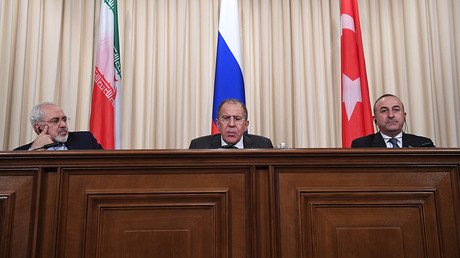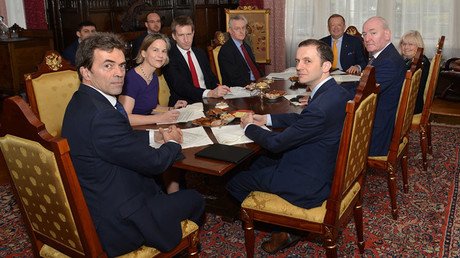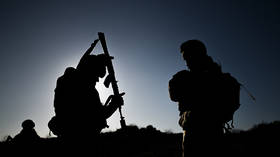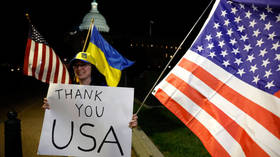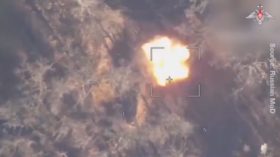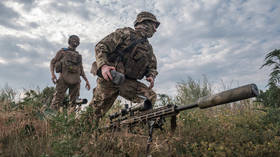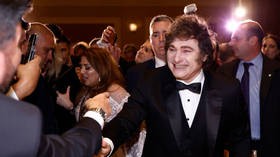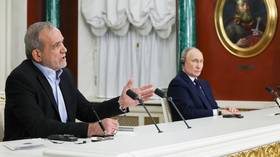Top UK diplomats slam Russia’s ‘malign influence’ in Syria
A senior British Foreign Office official has accused Russia of being “a very malign influence” and “making things worse” in Syria. That’s amid UK’s own reluctance to airdrop supplies to Syrian civilians, as the planes could easily be shot down.
Alan Duncan, the Foreign Office (FCO) minister of state for Europe and the Americas, was speaking to a Commons Foreign Affairs Committee on Russia’s role in Syrian conflict and its relations with the UK.
Asked by Labour MP Ian Murray if the UK should welcome Russia as “the key influencer in Syria and that could be a key influencer of brokering any ceasefire or political settlement,” Duncan erupted in an outburst.
“That is certainly not how I see it. I think they have been a very malign influence and they have made the situation worse. That has to be pointed out very robustly.”
The FCO political director, Tim Barrow, who was speaking alongside Duncan, echoed him, saying “the tragedy of Aleppo is quite rightly preoccupying us, but it does not mean the end to the suffering in Syria and it does not mean an end to the conflict and difficulties of Syria.”
Neil Crompton, the FCO Middle East director, told the Foreign Affairs Committee there were at least 300 Al-Nusra Front fighters in eastern Aleppo – recently liberated by the Syrian Army and allied forces – embedded with what he called “moderate opposition.”
“Certainly, the moderate opposition includes some Islamist fighters – well, large numbers of Islamist fighters, but there are no Daesh [Arabic acronym for Islamic State or IS, formerly ISIS/ISIL] in eastern Aleppo,” he admitted.
The British MPs were speaking on the day Russia hosted trilateral talks on Syria with Turkey and Iran. Russian Foreign Minister Sergey Lavrov met his Turkish and Iranian counterparts Mevlut Cavusoglu and Mohammad Javad Zarif.
The three nations have signed a Moscow declaration on immediate steps toward resolving the Syrian crisis, with Lavrov saying the Russia-Turkey-Iran alliance being the most effective to that end and the proof to that is “coordinated steps” by the three that have allowed “for the safe evacuation of the majority of the civilian population from eastern Aleppo.”
READ MORE: UK & US claim Russia ‘preventing’ Aleppo aid as Red Cross & UN speak of close cooperation
At a separate meeting, Russian Defense Minister Sergey Shoigu told his Iranian counterpart Hossein Dehghan that all previous “attempts to agree on joint efforts [to resolve the Syrian crisis] undertaken by the US or their partners were doomed,” as none of those “exerted real influence on the situation on the ground.”
The Russia-bashing statements from the British MPs come just a week after Foreign Secretary Boris Johnson’s rejection of the idea of providing humanitarian supplies to the city residents via air drops.
Johnson said British humanitarian efforts in Syria would be all but impossible as UK aircraft dropping aid would be vulnerable to terrorist groups, including IS, “making every effort to shoot down a British plane”.
The Russian military continues to deliver humanitarian supplies to the residents of Aleppo, although security remains a big issue in the city. Russia’s Reconciliation Center said in a Monday statement the military has provided over 1.5 tons of food to people fleeing eastern Aleppo, while units distributing hot meals and basic necessities operate on a daily basis.
In the meantime, there was “not a single gram of grain powder, not a single pill and not a single blanket” coming from the UK to the Syrian people, Igor Konashenkov, the Defense Ministry spokesman, said in early December in response to Prime Minister Theresa May’s claims that Russia does not allow foreign aid supplies to go to besieged Aleppo.
Last Friday, Russian Ambassador to the UK Alexander Yakovenko also dismissed the British accusations. He told MPs Russian military distributes 35 tons of food a day and delivers supplies for two hospitals, capable of treating 450 people a day.
“All this talk of humanitarian problems in Aleppo should be supported by deeds,” he told RT.
“They are emphasizing the humanitarian point of view, but the eastern part of Aleppo was held hostage by the terrorists and hundreds, maybe thousands, were killed, and I hope now these atrocities are in the past.”
“I put the question very straight: ‘How are you going to fight with the terrorists, because they are the cause of the need for humanitarian aid?’ And I didn’t get a clear answer,” the ambassador concluded.
